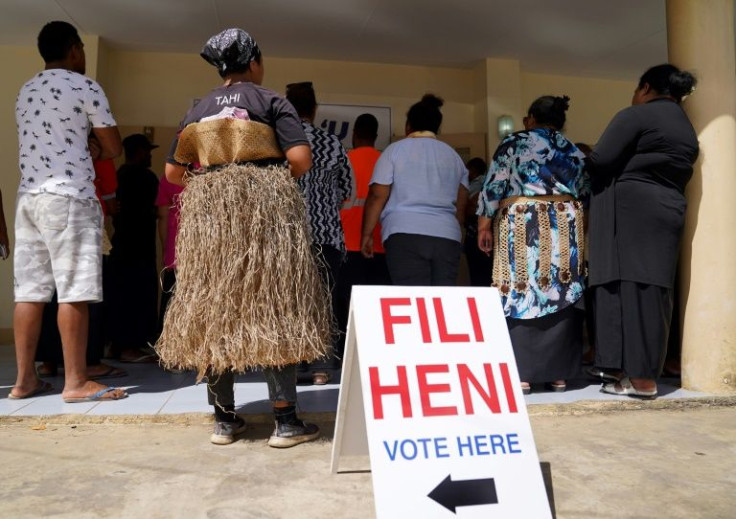Corruption And Covid In Spotlight As Tonga Votes
Tongans headed to the polls Thursday with corruption and the recent arrival of a single case of Covid-19 top of the agenda for voters in the tiny South Pacific kingdom.
Campaigning for this year's poll has been muted because of travel restrictions imposed after Tonga recorded its first coronavirus case earlier this month -- a traveller who tested positive while in quarantine after arriving from New Zealand.
The case ended Tonga's run as one of the last virus-free locations in the world, although it was later found to be a weak positive result.
However, there are concerns about the health system's ability to cope if the virus does spread into the community.
The nation of 106,000 was under feudal rule until 2010, when the monarchy boosted democratic representation in the wake of rioting four years earlier that razed the capital Nuku'alofa's downtown area.
But a string of political scandals and perceptions of government incompetence have eroded faith in the fledgling democracy's institutions.
A survey released by watchdog Transparency International this week found 62 percent of respondents thought corruption was a major problem, with almost 50 percent saying they had direct experience of bribery involving government officials.
In the lead-up to the election, King Tupou VI highlighted a need for the government to use taxpayers' money wisely and said Tonga faced many challenges including drug abuse, climate change and the pandemic.

The 26-seat parliament has 17 members elected by the people with nine places held by hereditary nobles.
There's a widely held perception that the parliament, or Fale Alea, is self-serving and distracted from national issues by party politics.
Elected members have access to a constituency fund of around $130,000 to spend in their villages but critics question whether it is used for pork barrelling.
Disaffection among the electorate can be seen in voter turnout, which has fallen steadily since reforms were introduced, barely exceeding 50 percent in 2019, when a by-election was held after prime minister Akilisi Pohiva died in office.
Current Prime Minister Pohiva Tuionetoa, no relation to his late predecessor, has been criticised for showering infrastructure spending on his constituency and hosting lavish national tours with feasting and prayers "to protect Tonga from Covid-19".
Election supervisor Pita Vuki said the number of ballot boxes had been increased, with every village now having one, as he urged the territory's 62,000 registered voters to exercise their democratic right.
There was no opinion polling ahead of the vote, making the outcome difficult to predict.
Polls closed at 4:00pm local time (0300 GMT) and results of individual seats were likely to be known late Thursday.
The winners will then enter negotiations on possible coalitions and it could be days before it is known if Prime Minister Pohiva Tuionetoa will retain the office he has held since 2019.
© Copyright AFP 2024. All rights reserved.











